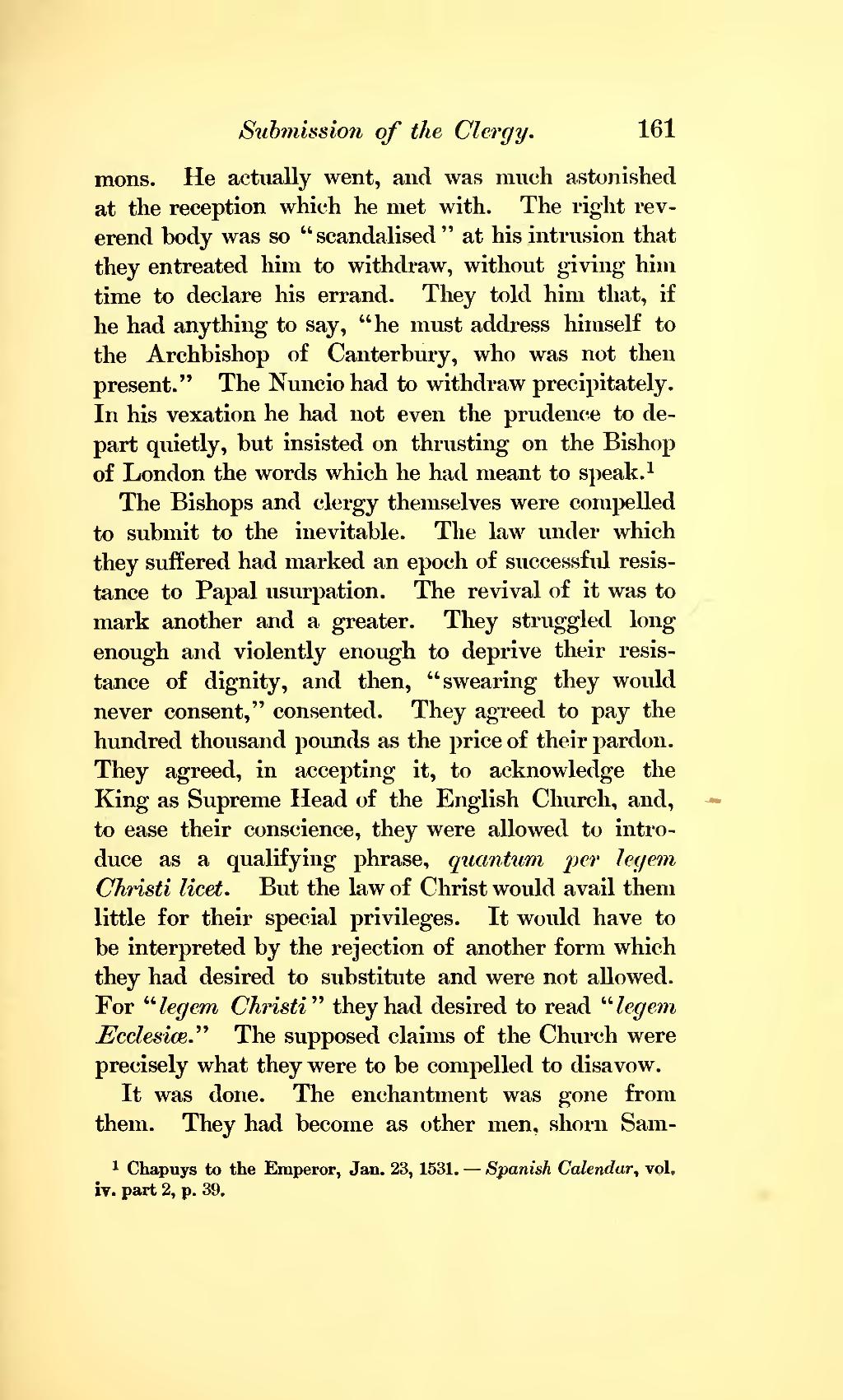mons. He actually went, and was much astonished at the reception which he met with. The right reverend body was so "scandalised" at his intrusion that they entreated him to withdraw, without giving him time to declare his errand. They told him that, if he had anything to say, "he must address himself to the Archbishop of Canterbury, who was not then present." The Nuncio had to withdraw precipitately. In his vexation he had not even the prudence to depart quietly, but insisted on thrusting on the Bishop of London the words which he had meant to speak.[1]
The Bishops and clergy themselves were compelled to submit to the inevitable. The law under which they suffered had marked an epoch of successful resistance to Papal usurpation. The revival of it was to mark another and a greater. They struggled long enough and violently enough to deprive their resistance of dignity, and then, "swearing they would never consent," consented. They agreed to pay the hundred thousand pounds as the price of their pardon. They agreed, in accepting it, to acknowledge the King as Supreme Head of the English Church, and, to ease their conscience, they were allowed to introduce as a qualifying phrase, quantum per legem Christi licet. But the law of Christ would avail them little for their special privileges. It would have to be interpreted by the rejection of another form which they had desired to substitute and were not allowed. For "legem Christi" they had desired to read "legem Ecclesiæ." The supposed claims of the Church were precisely what they were to be compelled to disavow.
It was done. The enchantment was gone from them. They had become as other men, shorn Sam-
- ↑ Chapuys to the Emperor, Jan. 23, 1531.—Spanish Calendar, vol, iv. part 2, p. 39,

